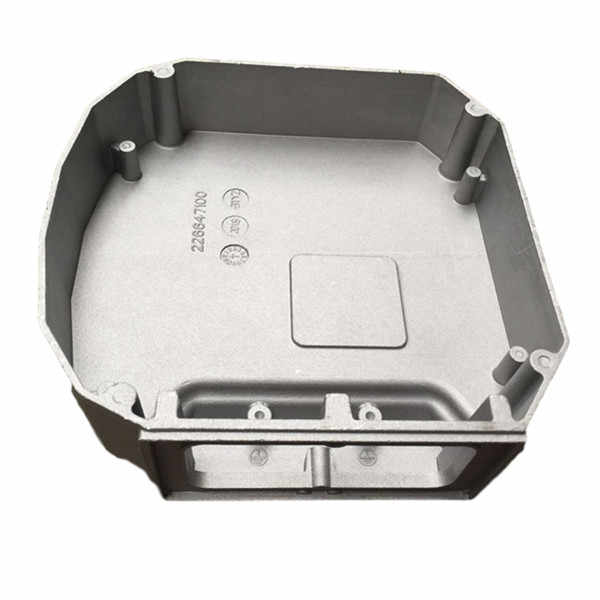The Facts About Alcast Company Uncovered
The Facts About Alcast Company Uncovered
Blog Article
The 10-Minute Rule for Alcast Company
Table of ContentsThe 7-Minute Rule for Alcast CompanyThe Greatest Guide To Alcast CompanyAn Unbiased View of Alcast CompanyThe Ultimate Guide To Alcast CompanyThe Only Guide to Alcast CompanyNot known Facts About Alcast Company
The subtle difference hinges on the chemical content. Chemical Comparison of Cast Aluminum Alloys Silicon advertises castability by decreasing the alloy's melting temperature level and boosting fluidness throughout spreading. It plays a crucial role in enabling detailed mold and mildews to be filled precisely. Additionally, silicon adds to the alloy's strength and use resistance, making it valuable in applications where sturdiness is important, such as auto components and engine elements.It additionally enhances the machinability of the alloy, making it simpler to refine right into ended up products. This way, iron adds to the total workability of aluminum alloys. Copper boosts electric conductivity, making it beneficial in electric applications. It also enhances corrosion resistance and contributes to the alloy's overall strength.
Manganese adds to the stamina of aluminum alloys and improves workability. Magnesium is a light-weight component that provides toughness and impact resistance to aluminum alloys.
The 15-Second Trick For Alcast Company
It enables the manufacturing of light-weight elements with superb mechanical residential or commercial properties. Zinc enhances the castability of light weight aluminum alloys and assists regulate the solidification process throughout casting. It enhances the alloy's strength and solidity. It is usually located in applications where detailed shapes and great details are essential, such as ornamental castings and certain automotive parts.

The primary thermal conductivity, tensile stamina, return toughness, and elongation vary. Select suitable basic materials according to the efficiency of the target item produced. Among the above alloys, A356 has the highest possible thermal conductivity, and A380 and ADC12 have the most affordable. The tensile limit is the contrary. A360 has the most effective yield strength and the greatest elongation rate.
Alcast Company Can Be Fun For Anyone

In precision spreading, 6063 is well-suited for applications where complex geometries and high-grade surface coatings are vital. Instances include telecommunication enclosures, where the alloy's superior formability permits streamlined and visually pleasing designs while keeping structural stability. In the Lights Solutions sector, precision-cast 6063 components create stylish and efficient illumination components that call for intricate forms and good thermal efficiency.
The A360 exhibits remarkable prolongation, making it suitable for complex and thin-walled elements. In precision spreading applications, A360 is fit for markets such as Customer Electronics, Telecommunication, and Power Tools.
About Alcast Company
Its one-of-a-kind buildings make A360 a valuable option for accuracy spreading in these markets, enhancing item durability and quality. Aluminum alloy 380, or A380, is a commonly made use of casting alloy with numerous unique attributes. It uses outstanding castability, making it an ideal selection for precision spreading. A380 exhibits good fluidity when molten, ensuring intricate and in-depth mold and mildews are accurately recreated.
In accuracy spreading, aluminum 413 beams in the Customer Electronic Devices and Power Devices industries. It's typically utilized to craft elaborate elements like mobile phone housings, electronic camera bodies, and power tool cases. Its precision is exceptional, with limited resistances as much as 0.01 mm, making certain perfect item assembly. This alloy's remarkable deterioration resistance makes it an excellent option for exterior applications, ensuring long-lasting, sturdy products in the mentioned industries.
Alcast Company - The Facts
As soon as you have actually decided that the aluminum die casting procedure is ideal for your job, an important following action is making a decision on the most appropriate alloy. The aluminum alloy you pick will significantly influence both the spreading procedure and the buildings of the end product. Due to this, you should make your decision carefully and take an enlightened strategy.
Establishing one of the most ideal light weight aluminum alloy for your application will certainly indicate evaluating a broad range of features. These comparative alloy attributes follow the North American Die Spreading Organization's standards, and we've divided them into 2 groups. The very first category addresses alloy attributes that impact the manufacturing procedure. The 2nd covers attributes influencing the homes of the end product.
What Does Alcast Company Mean?
The alloy you select for die casting straight influences numerous aspects of the spreading procedure, like how very easy the alloy is to function with and if it is vulnerable to casting problems. Warm breaking, additionally called solidification breaking, is a common die spreading flaw for light weight aluminum alloys that can cause inner or surface-level tears or fractures.
Certain aluminum alloys are much moved here more vulnerable to warm splitting than others, and your choice ought to consider this. Another common flaw located in the die spreading of aluminum is pass away soldering, which is when the cast stays with the die wall surfaces and makes ejection difficult. It can damage both the cast and the die, so you need to seek alloys with high anti-soldering homes.
Corrosion resistance, which is currently a remarkable feature of light weight aluminum, can vary considerably from alloy to alloy and is a vital characteristic to think about relying on the environmental conditions your product will be subjected to (Foundry). Wear resistance is an additional residential or commercial property typically looked for in light weight aluminum products and can separate some alloys
Report this page